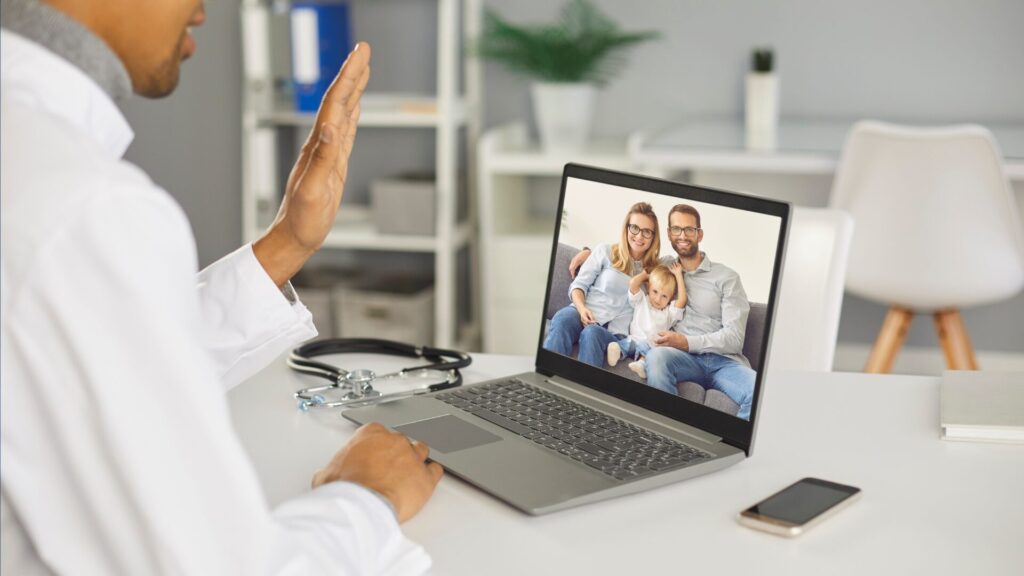The Difference Between Telehealth vs Telemedicine
Image sourced from Canva
When it comes to Telehealth vs Telemedicine, it is important to know that both are distinct terms, yet they are used interchangeably in the field of healthcare. As telemedicine and telehealth gain wider use, it is not easy to differentiate between these two terms.
According to the World Health Organization (WHO), telemedicine is a service delivered by physicians, whereas telehealth refers to services provided by healthcare professionals in general, which include pharmacists, nurses, and others.
According to the American Telemedicine Association, both telehealth and telemedicine are interchangeable terms. For instance, telemedicine is the evolution of healthcare in the digital space, and telehealth may not involve clinical care.
However, keep in mind that both telehealth and telemedicine improves the equity, quality, and affordability of healthcare for patients. Interestingly, both telehealth and telemedicine have gained popularity during the ongoing COVID-19 pandemic.
Wearing face masks, hand gloves, protective gear, and maintaining social distancing – all have become the “new normal.” The WHO, CDC, and other reputable health organizations recommend people to do whatever it takes to avoid getting infections and spread the virus until there is a vaccine.
So, considering the intensity of the COVID-19 pandemic, the Minimally Invasive Neurosurgery of Texas has further improved its telehealth and telemedicine protocols. You can contact our back pain surgeon and discuss with him your health condition via videoconferencing apps.
The Importance of Telemedicine and Telehealth
Talking about Telehealth vs Telemedicine, it is vital to know that there are no marked differences between the two terms. Most often, they are used interchangeably by healthcare institutions and organizations throughout the world. However, we have already mentioned the key difference between the two terms above.
As the novel coronavirus wreaks havoc with the health system in the U.S and other countries of the world, telemedicine and telehealth are stepping up into the spotlight. Healthcare providers, including surgeons, are using digital technologies to respond to the health needs of Americans.
Here, at the Minimally Invasive Neurosurgery of Texas, our surgeons believe that telehealth and telemedicine are making a positive contribution to preoperative and postoperative care during the pandemic.
However, there are certain limitations to the telemedicine, and that’s why our team of professionals is making substantial efforts to overcome the challenges and provide the best health services to our patients.
Although we can provide preoperative and postoperative care to patients over videoconferencing, patients need to visit the clinic for surgery. So, it may be troublesome for some patients and they may show resistance in coming to the clinic for minimally invasive spine surgery.
However, the Minimally Invasive Neurosurgery of Texas follows the standards, rules, and protocols defined by the WHO, CDC, and other reputable health organizations. Our staff sanitize the clinic every day and wear protective gear to prohibit the spread of the virus.
When you visit our clinic for surgery on the scheduled date, we will provide you with protective gear, which includes an N-95 face mask, hand gloves, and sanitize your hands using high-quality products. During the surgery, our back pain surgeon will maintain a good distance and use technology tools to accurately perform the surgery.
So, it means you should not worry about getting COVID-19 infections. Also, we perform COVID-19 RT-PCR tests before and after the surgery and advise our patients to stay at home for at least two weeks in the quarantine when their tests are COVID-19 positive.
Consult With Our Back Pain Surgeon Before the surgery
You have already understood Telehealth vs Telemedicine and its benefits, especially during the Covid-19 pandemic. We want to let you know that you can consult with our back pain surgeon and discuss with him or her about your health condition.
Our surgeon will diagnose your problem based on the signs and symptoms you tell him and then come up with a sophisticated treatment. For instance, if you have a minor problem that can be solved with conservative methods, such as physical therapy and medicine, then our surgeon will prescribe your medicine and explain about the therapy techniques.
On the other hand, when these treatments fail to improve your condition, you can consult with our back pain surgeon again via videoconferencing so that further action is discussed. After carefully examining your situation, our back pain surgeon will give you surgery options and tell you about the best MIS technique.
The Minimally Invasive Neurosurgery of Texas has qualified, licensed, and experienced surgeons who provide high-quality health services to its patients in Plano, TX. Lastly, Telehealth vs Telemedicine is not very different for our surgeons – as we have incorporated both to provide excellent preoperative and postoperative care to our patients.

